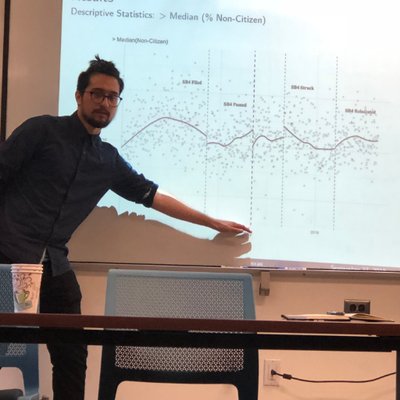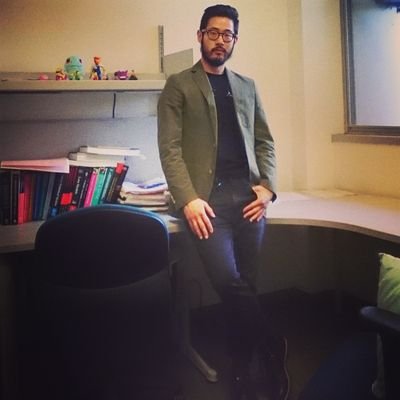People
Faculty
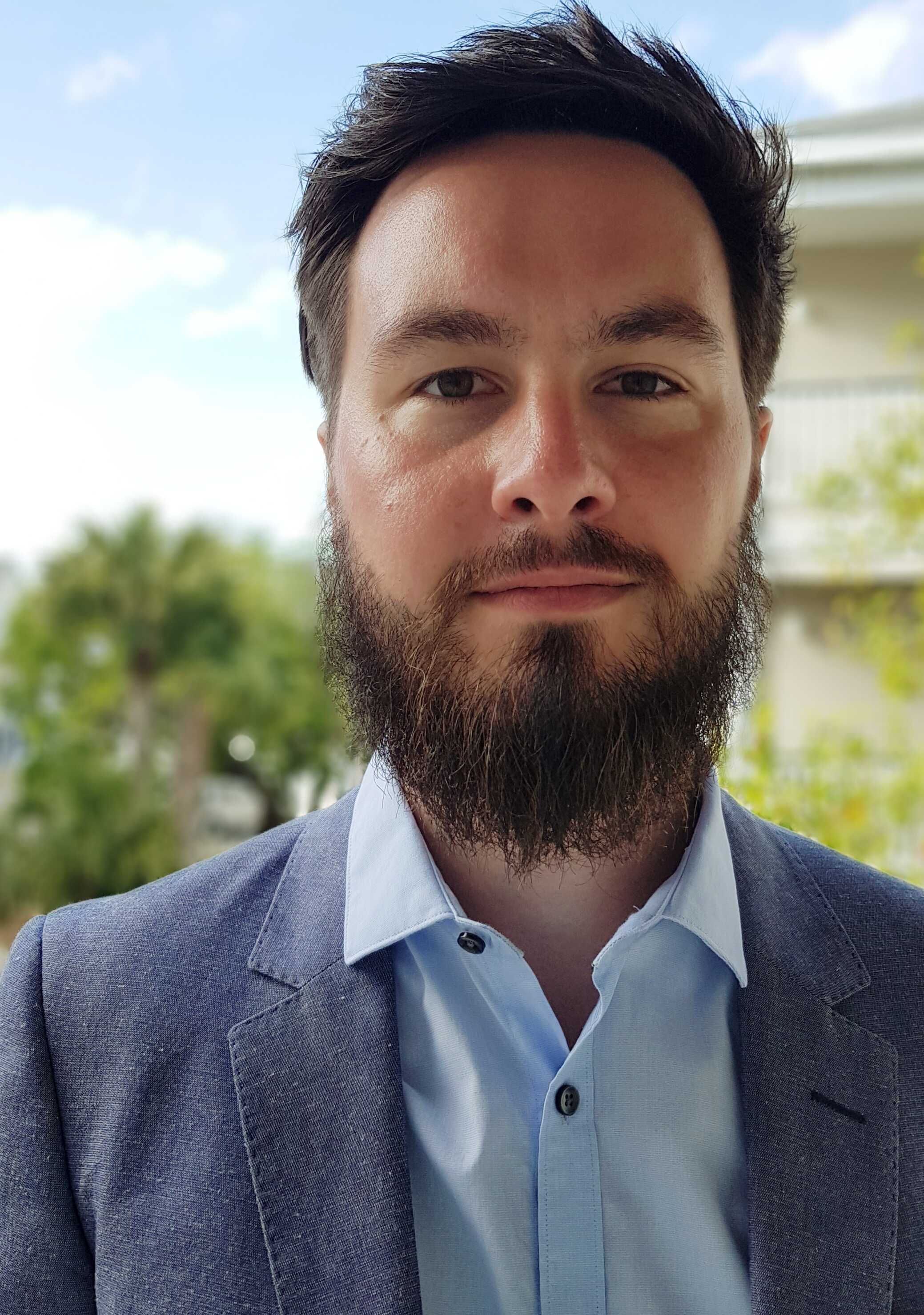
Friedolin Merhout
Friedolin Merhout is a doctoral student in the Duke Sociology department. He enjoys exploring how computational methods provide a new lens to view longstanding social science debates, and pondering the potential inherent in the wealth of digital trace data. Before starting the doctoral program at Duke, he earned a BA from Freie Universitaet in his hometown Berlin.
Alina Arseniev-Koehler
Alina Arseniev-Koehler is currently a graduate student at the University of California Los Angeles pursuing a PhD in Sociology. Substantively, her research interests include culture, cognitive sociology, language, and health and illness. Methodologically, she is interested in computational social science and machine-learning, with a focus on the computational analysis of language. Her Master’s research aimed to provide a cognitively plausible, computational account of the schemata activated by news reporting on obesity. Alina also enjoys learning and teaching new computational techniques and helps coordinate the Computational Sociology Working Group at UCLA.
Jennie E. Brand
Jennie E. Brand is Professor of Sociology and Statistics at the University of California, Los Angeles (UCLA). She is Director of the California Center for Population Research (CCPR) and Co-Director of the Center for Social Statistics (CSS) at UCLA. She is Chair-Elect of the Methodology Section of the American Sociological Association (ASA) and an elected Board Member of the International Sociological Association (ISA) Research Committte on Social Stratification and Mobility (RC28). Prof. Brand is a member of the Board of Overseers of the General Social Survey (GSS) and a member of the Technical Review Committee for the National Longitudinal Surveys Program at the Bureau of Labor Statistics. She received the ASA Methodology Leo Goodman Mid-Career Award in 2016, and honorable mention for the ASA Inequality, Poverty, and Mobility William Julius Wilson Mid-Career Award in 2014. Prof. Brand studies social stratification and inequality, mobility, social demography, education, and methods for causal inference.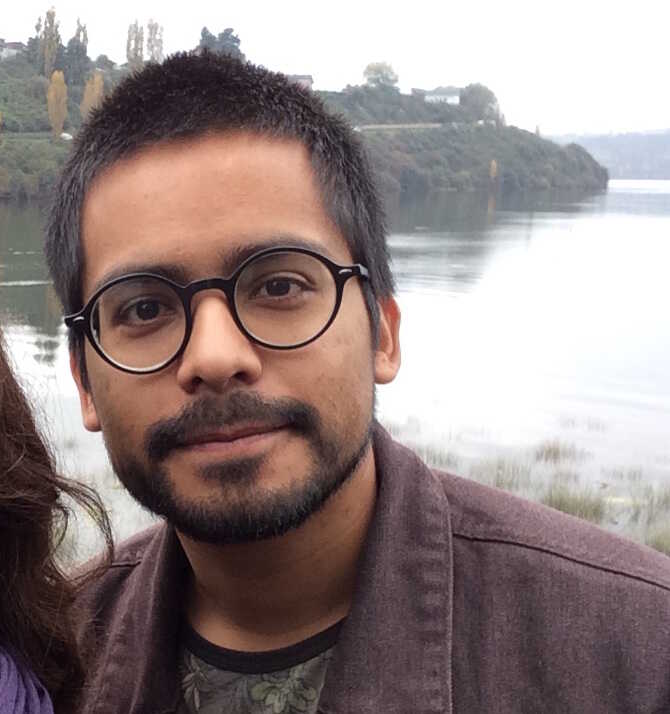
Pablo Geraldo Bastías
Pablo Geraldo Bastías is a graduate student at the University of California Los Angeles (UCLA) affiliated to the California Center for Population Research (CCPR). His research examines how institutions influence inequality in education and the labor market, with a particular focus on skill formation systems and school-to-work transitions. He is interested in the intersection of causality, machine learning, and network analysis.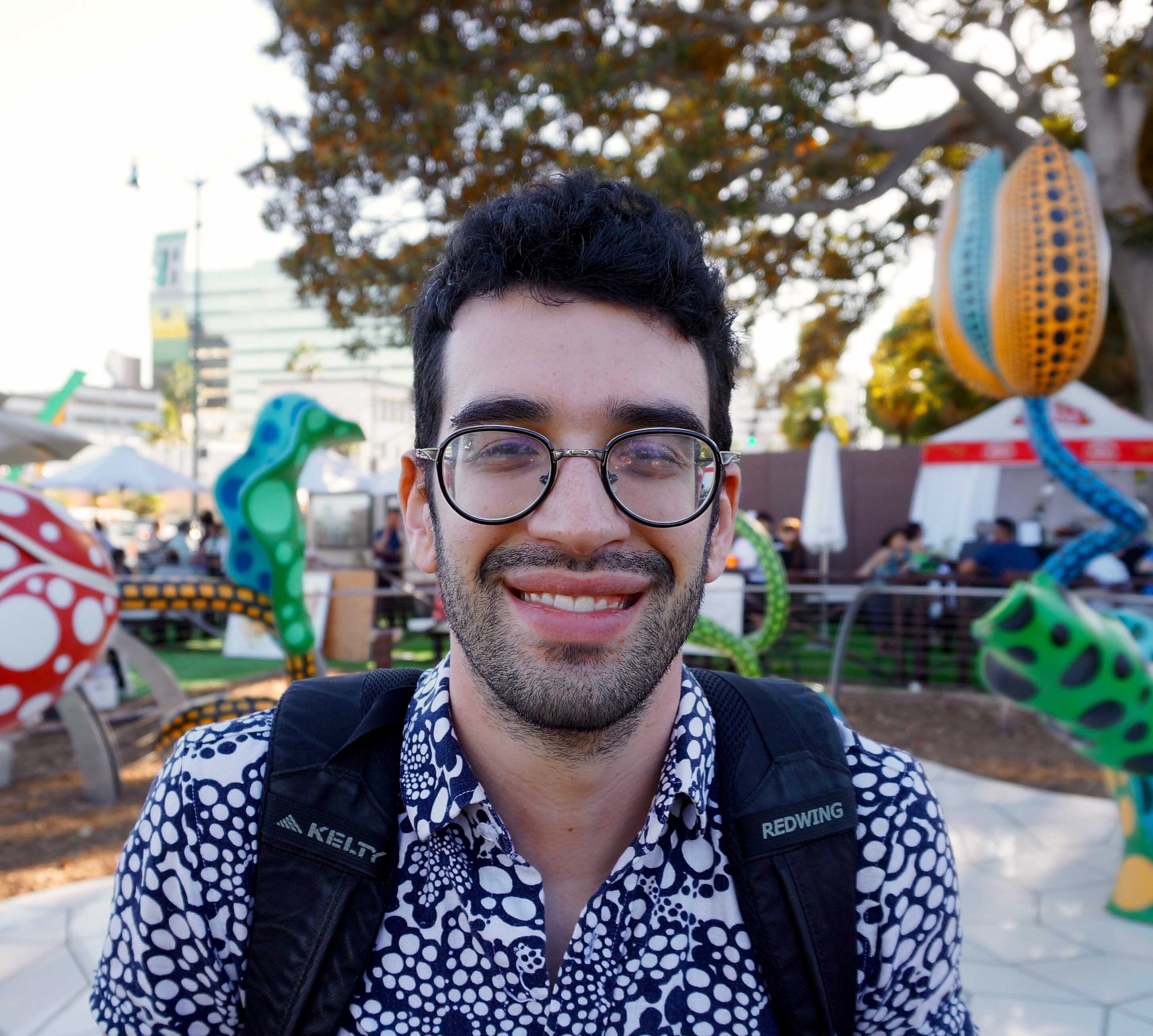
Bernard Koch
Bernard is a sociology graduate student at UCLA. He developed research interests in culture, science, and computational methods through previous experiences in comparative genomics/bioinformatics and science education research. His master's thesis adapted models from macroevolutionary biology to explain the historical trajectories of cultural populations like music genres, scientific fields, and industries. For his dissertation, he'd like to focus on how deep learning can be applied to network and causal inference problems to help identify how we can make science more efficient, productive, and equitable. Bernard is passionate about collaborative science and teaching, and has given workshops on programming, machine learning, and/or computational social science for the National Human Genome Research Institute (NIH), the UCLA Library, and the UCLA Sociology Department.Speakers

Tim Dennis
Tim Dennis is the Director of the UCLA Library Data Science Center where he provides data science support, including instruction, one-on-one consulting, and community building. He is a regular user of R, Python, SQL and command-line tools and has extensive experience helping researchers and students with these tools. He's also an instructor with The Carpentries, a global volunteer run educational community that teaches foundational coding and data science skills to researchers.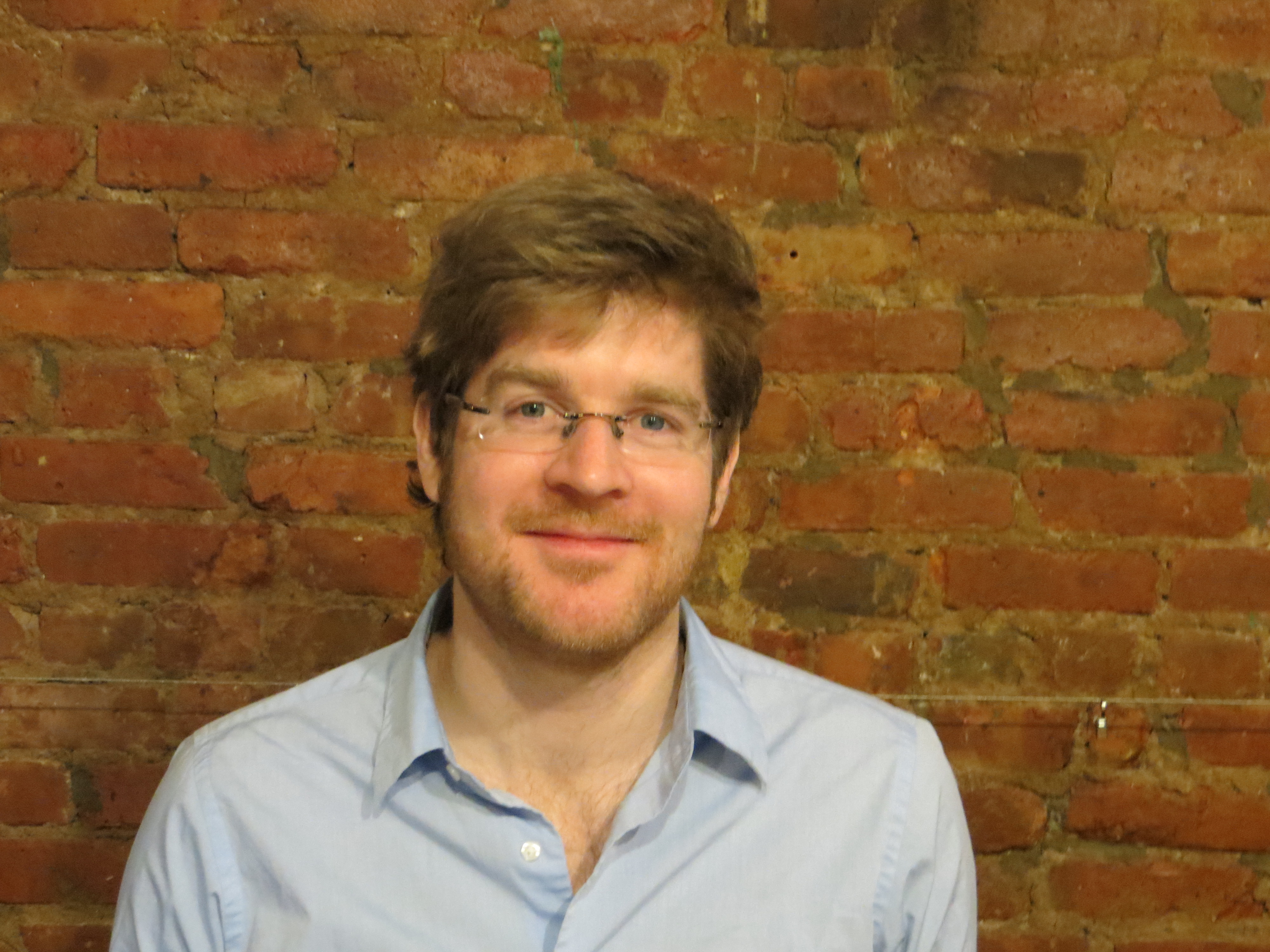
Dennis Feehan
Dennis Feehan is a demographer and quantitative social scientist whose research interests lie at the intersection of networks, demography, and quantitative methodology. He is an Assistant Professor of Demography at the University of California, Berkeley. Prior to joining the demography department at Berkeley, he received his Ph.D. at Princeton’s Office of Population Research and worked as a Research Scientist at Facebook.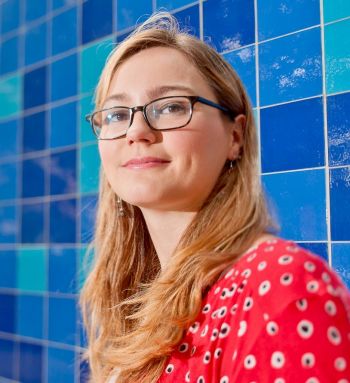
Erin Hartman
Erin Hartman is an Assistant Professor of Statistics and Political Science at UCLA. Her recent research focuses on creating new methods–including both theoretical approaches and new estimation strategies–for identifying and validating causal effects. She also studies survey design methodologies, including a new survey sampling method that reduces reliance on post hoc weighting methods and alleviates non-response bias, and an automated raking methodology that selects the optimal auxiliary vector on which to weight.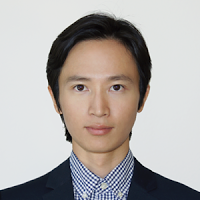
Jungseock Joo
Jungseock Joo is an Assistant Professor in the Department of Communication at the University of California, Los Angeles. He received is Ph.D. in Computer Science from UCLA in 2015 and worked as a Research Scientist at Facebook before returning to UCLA to join the Department of Communication.
Ka-Yuet Liu
Ka-Yuet Liu is an Associate Professor in the Department of Sociology, UCLA, whose research mostly focuses on the intersections between social network analysis and social epidemiology. She received her D.Phil. (Sociology) in 2008 from the University of Oxford and completed a post-doc at Columbia University before joining UCLA as a faculty member in 2012.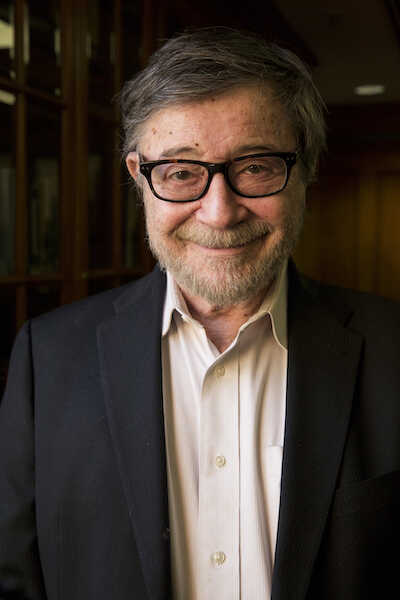
Judea Pearl
Judea Pearl is a computer scientist and philosopher, best known for championing the probabilistic approach to artificial intelligence and the development of Bayesian networks. He is credited for developing a theory of causal and counterfactual inference based on structural models. He is the 2011 winner of the ACM Turing Award, the highest distinction in computer science.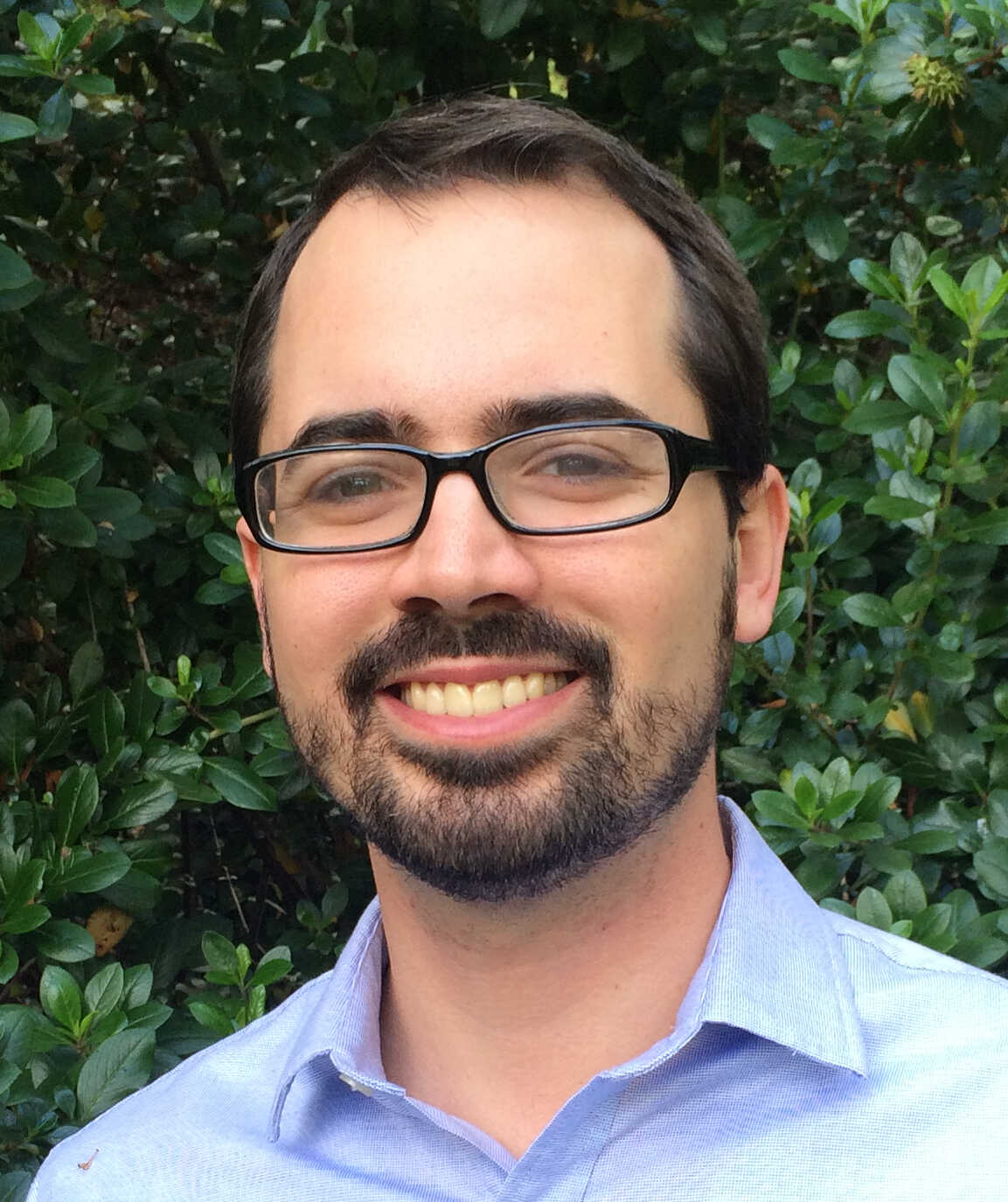
Sam Pimentel
Sam Pimentel is an Assistant Professor in the Statistics Department at UC Berkeley. His research centers on methodology for causal inference in observational studies. He develops new ways to form matched comparison groups in large observational datasets using approaches from discrete optimization. These tools allow transparent and interpretable inferences about the effects of interventions, and provide opportunities to study the impact of potential unobserved confounding variables. He is also interested in applying these methods in health services research, public policy, and the social sciences.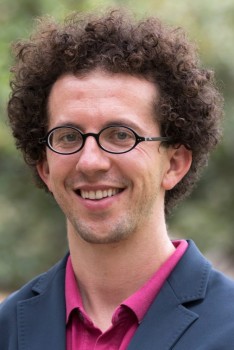
Zachary C. Steinert-Threlkeld
Zachary C. Steinert-Threlkeld is an Assistant Professor of Public Policy at the UCLA Luskin School of Public Affairs. His research interests are at the border of international and comparative politics, exploiting in particular vast social media data to study subnational conflict. His current research focuses on the mobilization of mass protest during the Arab Spring and Ukraine’s Euromaidan protests, as well as elite behavior and state repression in authoritarian regimes.Live Stream and Lectures
Christ Bail, Justin Grimmer, Alondra Nelson, Beth Noveck, Matt Salganik, and Chris WigginsTeaching Assistants
Participants

Caitlin Ahearn
Caitlin Ahearn is a doctoral student in Sociology at the University of California, Los Angeles. Her research focuses on the sources and consequences of inequality in educational attainment. For her master’s thesis she studied the sources of alignment of educational and career expectations among adolescents, and her dissertation will examine the effects of differential college experiences on the transition to adulthood. She is interested in applications of causal inference, particularly heterogeneity in causal effects and causal mediation analyses, using large-scale survey data. Caitlin is also an affiliate of the California Center for Population Research and a research assistant for the Los Angeles Education Research Institute.
Mohammad Atari
Mohammad is a Ph.D. student in social psychology at USC. He uses experimental, psychometric, and computational methods to study personality and morality. He takes an evolutionary perspective to examine cross-cultural differences and similarities in human behavior and its portrayal in social media.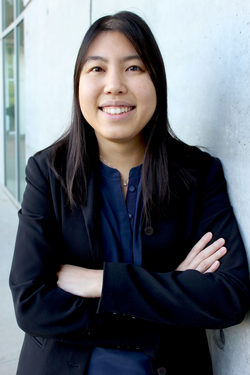
Bonnie Bui
Bonnie Bui is a postdoctoral research fellow for the Center for Studies of Displaced Populations in the Department of Global Community Health & Behavioral Sciences at Tulane University’s School of Public Health & Tropical Medicine. She received her Ph.D. in Sociology from the University of California, Irvine. Her interests are in population health and aging using social network analysis and demographic analytical methods. Her current work focuses on immigrant and refugee health, focusing on how displacement impacts health and well-being through disruption of personal social support networks.
Osman Celik
Osman Celik is pursuing Ph.D. in Political Science at UCLA. His research includes survey data, online political information, and voter behavior and currently focuses on explaining foreign policy change via political psychology of policy-makers and voters. He is using mixed methods - process tracing, textual analysis of foreign policy-makers' public speeches, and experimental survey of voters' perception of foreign policy - to study and explain foreign policy changes of emerging state actors in regional and global politics.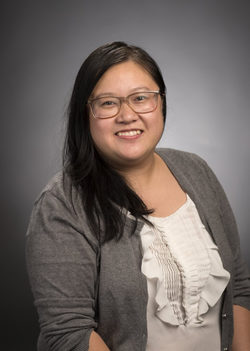
Kristine Chan
Kristine Chan is a social worker and a doctoral student in the Department of Criminology, Law and Society at the University of California, Irvine (UCI). Her research focuses on the juvenile justice system, particularly the experiences of juvenile reentry youth and factors related to recidivism and improving outcomes. She is interested in integrating technology in data collection and using programming to expand research methods.Catherine Choe
Catherine Choe is a 2nd year PhD student in Higher Education and Organizational Change at the UCLA Graduate School of Education and Information Studies. Prior to the program, she received her master's degree in Educational Counseling from USC, as well as bachelor's degrees in English and Art History from UC Berkeley. Catherine currently works as a Counselor at El Camino College and as a College Academic Mentor at UCLA, and she has previously worked in first year experience programs, disability services, career centers, and writing centers at 2- and 4-year institutions. Catherine's research interests focus on organizational theory, community colleges, and faculty and administrators of postsecondary institutions.
Hanyu Chwe
Hanyu is an incoming second-year PhD student at the Network Science Institute at Northeastern University. He graduated with a degree in Economics and Political Science from Swarthmore College in 2016, and then worked for the Global Attitudes team at the Pew Research Center before starting his PhD. He is broadly interested in computational social science, natural language processing, and exploring the interdisciplinary nature of network science.Angela Clague
I am a second year Sociology PhD student interested in health trauma. In addition to my graduate studies, I also work as a Program Analyst the West LA VA Medical Center. Prior to coming to graduate school, I worked as a Research Assistant for two years at the RAND Corporation.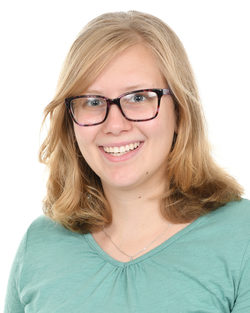
Sarah Cooney
Sarah Cooney is a second year PhD student in Computer Science at the University of Southern California. Her research interest is in the intersection of technology and computing for social good.
Cody Couture
I am currently a graduate student at the University of California, Irvine pursuing a PhD in economics. Broadly speaking, my research investigates the interaction between monetary policy and financial markets. In my recent work, I have been examining the impact that central bank communication, particularly that of the Federal Reserve, has on market expectations. I hope to pursue future research using textual analysis in order to better quantify central bank communication and market feedback.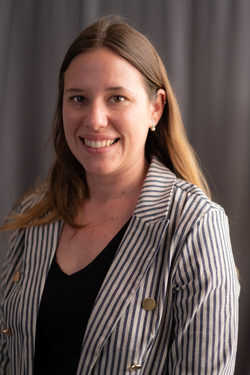
Aline Duarte Folle
Aline is currently a PhD candidate in Epidemiology, studying potential causes and effects of sleep problems in Parkinson's disease. She is from Brazil, where she was a local pharmacist working and researching in the area of Pharmaceutical Services within different levels of care of the Brazilian Unified Health System (Sistema Único de Saúde - SUS). Her research interests lie in evaluating general risks factors and promoters of health, focusing on the older adult population, with the goal of improving health indicators within this group.
Mai ElSherief
Mai ElSherief is a 5th year Ph.D. candidate at the Computer Science department at UC, Santa Barbara within the Mobility Management and Networking (MOMENT) Lab, advised by Elizabeth Belding and William Wang. Her research interests lie in the intersection of Social Computing, Natural Language Processing, and Online Social Networks, specifically causes of social good. Her Ph.D. thesis focuses on developing computational methods for improving the detection and characterization of online hate speech and communities of hate in addition to characterizing offline street harassment and online anti-gender-based violence social movements. She has been a summer research intern at the Berkman Klein Center for Internet and Society at Harvard University understanding anti-immigration sentiment and the discursive practices of online hate groups. She was awarded the 2017 Fiona and Michael Goodchild Graduate mentoring award for her distinguished research mentoring of undergraduate students. Prior to entering the field of Social Computing, she earned her M.Sc. in the area of Wireless Communication and Information Technology from Nile University, Egypt. Funded by a Google Research Award, she devised novel Information-theoretic models for Opportunistic Mobile Social Networks. She is the recipient of both the IEEE best project award for the Cairo University Student Branch (CUSB) and the Ideal student award for Cairo University in 2009.
Ross Graham
Ross Graham is a first year PhD student in sociology at the University of California, San Diego. Before attending UCSD, he completed a BA in anthropology from Durham University, an MS in sustainability studies from Lipscomb University, and worked as a researcher in the Centre for Biomedical Ethics and Society at Vanderbilt University Medical Center. His research interests span the sociology of science and technology, ethics, intelligence and cognition, big data and existential risk.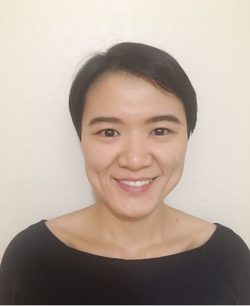
Wanyang Hu
Wanyang Hu is an Assistant Professor of Public Administration (tenure track) at the University of Macau. She earned her Ph.D. from the University of California Los Angeles in 2018, a M.S. and a B.E. from Tsinghua University in 2013 and 2010, and a B.A. in Economics from Peking University in 2012 (double major degree). Her research focuses on urban and regional development, particularly the intersection between urban policy, labor mobility, and economic development. She also works on housing market analysis and housing policy. She is a quantitative researcher with extensive experience in large-data set computing. She is especially interested in spatial econometrics, discrete choice modelling, models with latent variables and causal inference.
Ryan Hyon
Ryan is an incoming PhD student in UCLA's Psychology program. He received his BA in Neuroscience at Dartmouth College and has spent the past two years as a research associate in Dr. Carolyn Parkinson's Computational Social Neuroscience Lab. Broadly, he integrates neuroimaging and social network analysis to study how we shape and are shaped by the social networks that we inhabit. His recent work has involved using machine learning to identify multivariate signatures of neural activity across the brain that are predictive of individuals' real-world social network characteristics. He is also interested in studying how individual differences in the use of language and in interpretations of narratives may relate to meaningful individual differences in neural activity and social network position. Ryan is particularly excited to learn about text analysis!
Linle Jiang
I am a first-year PhD student in the Social Psychology Program at USC. I am interested in using computational methods to systematically investigate and model the effects of individual and contextual factors on human decision-making processes and behaviors, based on the natural data collected from social media.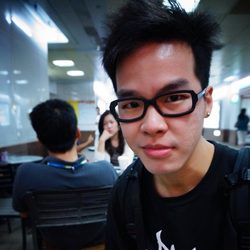
Jay Kao
I am a Ph.D. candidate in the Department of Government at the University of Texas at Austin. My research interests include politics in authoritarian regimes, disinformation, political communication, Chinese politics, causal inference, as well as political economy of development.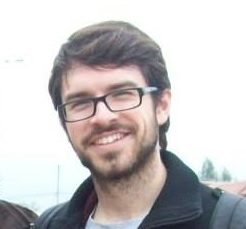
Alexander Kwako
As a third year PhD student in education, I am broadly interested in social research methodology and how research can be used to understand and improve educational systems, particularly for underrepresented and marginalized students. Currently, at UCLA's Institute for Democracy, Education, and Access, I am analyzing a national survey of high school principals' civic leadership beliefs and practices. One civic leadership practice that we are examining is principals’ school-wide communication of racial and religious tolerance, and what leverage points exist for supporting this kind of communication at public high schools.
Tianjian Lai
I am a 3rd year PhD student in sociology at UCLA interested in examining the stratifying effects of immigration policy, in particular legal status categories, on the social, economic, and political lives of immigrants and their children. My MA thesis examined how legal status shapes the civic participation of Latino immigrants in Los Angeles. I hope to apply computational methods to impute legal status when such measures are not fully available, gain familiarity with new data sources and data collection methods, and disentangle the causal effects of legal status acquisition.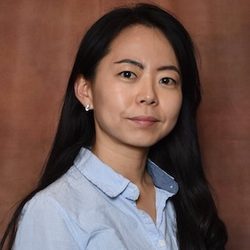
Jihye Lee
Jihye Lee graduated from Yonsei university with a double major in computer industrial engineering and psychology. After graduating from Yonsei university, she received an M.A. in criminal justice at SUNY-Albany. Her research interests are family and child development, social network, and criminology. Prior to her admission to the USC, her academic work focused on criminal justice issues and appeared in academic journals such as the International Criminal Justice Review and Criminal Law Bulletin. Her master’s thesis in Sociology examines how U.S. family values embedded in non-immigration policies (re)shape the lives of spouses of international students from gender and social class perspectives. Her dissertation focuses on U.S. adolescents’ friendship networks and the effects of their friendship networks on educational inequality and behaviors.
Joyce Lui
Joyce Lui is a postdoctoral fellow in the Department of Psychology at UCLA. She received her doctorate in Clinical Psychology from Washington State University. Joyce's research has focused on the precipitating factors, correlates, and outcomes of youth with conduct problems and psychopathic traits. She is extending this research to focus on optimizing the provision and coordination of evidence-based mental health services for youth with persistent conduct problems.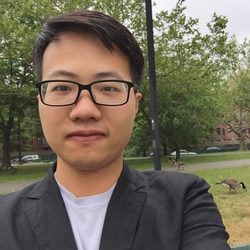
Jinwen Luo
Jinwen is a first-year Ph.D. student studying advanced quantitative methods at the Graduate School of Education & Information Studies (GSE&IS) of the University of California, Los Angeles (UCLA). He is interested in learning behaviors and how they impact students' learning outcomes under the schooling contexts. His current research includes jointly modeling different measurements of human abilities and the skills in schools. The techniques he is using include item response theory (IRT) models, network analysis, cross-classified models.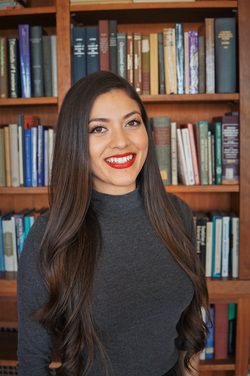
Patricia Martin
Patricia Martin is a current graduate student at UCLA in the Graduate School of Education and Information Studies in the Higher Education and Organizational Change program. Her research interests broadly include college access, organizational behavior, and university admissions and recruitment practices. Specifically, her research examines the unequal university recruitment practices that disproportionately create barriers to college access for underrepresented students. She is interested in using mixed-methodology including ethnography, geospatial analysis, and machine learning.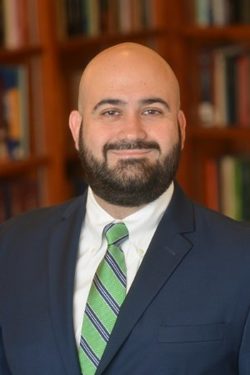
Oscar Mayorga
Prior to his graduate studies at UCLA, he has worked in various capacities in higher education institutions for the last fifteen years in the Northeast, where he was the director of a cross-cultural center and chief diversity officer. Oscar is earning his Ph.D. in Sociology with subfield specialty in race and ethinicty, economic sociology and quantitative methods. His focus is on identifying the social mechanism by which racial ideologies are embedded in markets and perceptions of the economy, at large.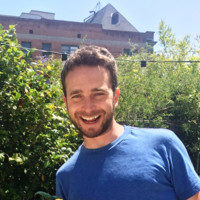
Galen Murray
I’m interested in how corruption and criminal elements impede (or facilitate) public service delivery. My dissertation uses a regression discontinuity design to estimate the causal impact of 'criminal' politicians on the delivery of state resources to citizens in India. To flesh out how local politicians influence benefit delivery, I study the geospatial distribution of the world's largest welfare program (NREGS in India). Specifically, I'm interested in how local politicians target their supporters by mapping the location of 20 million welfare projects to micro-levels of political support (estimated from polling station level results). I complement this quantitative research with over 12 months of on the ground interviews, with politicians, activists and local leaders in Bihar, India. Quantitatively, I’m interested in causal inference using observational data.
Kaye Nantah
Kaye Nantah is a second-year Ph.D. student in the Department of Sociology at Cornell University. She is interested in the expression and formation of racial-ethnic identities, especially among second-generation immigrants. Having double majored in psychology and sociology at the University of Houston, she hopes to blend elements of demography, cultural sociology, and social psychology as well as to work at the junction between the race and immigration literatures.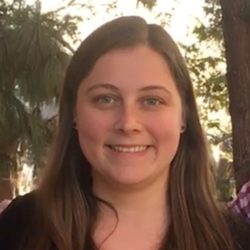
Gwen Price
Gwen Price is a 3rd year doctoral student in the Department of Psychology at the University of California, Los Angeles. Her research focuses on language acquisition in infancy and childhood. In particular, she is interested in the effect that learning tools like comparison, contrast, and spacing have on children’s ability to construct categories, learn labels for them, and remember them for a lifetime.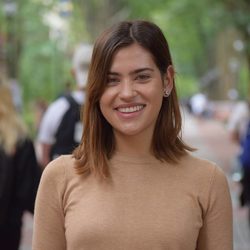
Alejandra Regla-Vargas
Alejandra Regla-Vargas is a Ph.D. student in the Department of Sociology at the University of Pennsylvania. Her broad research interests are in social movements, immigration, and digital sociology. Prior to her graduate studies, she received a B.A. in Chicana/o Studies from California State University, Dominguez Hills.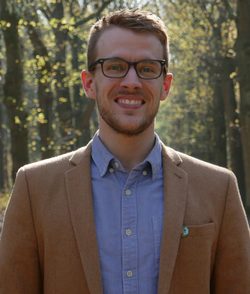
Julius Rüschenpöhler
Julius is a postdoctoral researcher at the Center for Effective Global Action at the University of California, Berkeley. He received his PhD in Economics from Tilburg University and was a visiting research student at the Abdul Latif Jameel Poverty Action Lab (J-PAL) in Jakarta, Indonesia. Julius' work lies at the intersection of Development and Behavioural Economics. He is interested in the psychology of poverty, individual decision-making, culture and identity economics, as well as work on the deep roots of development. In his research, Julius' has worked with micro- and small enterprises in Indonesia and Vietnam and on peer learning, aspirations, small-business growth, and business practices.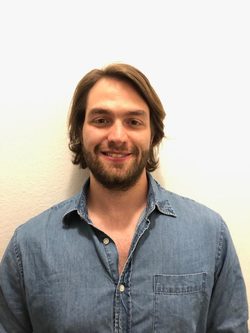
Pietro Spini
I'm an Italian student pursuing a PhD in Econometrics at UCSD. After getting my bachelor in Italy, I obtained a Masters in Economics from Cornell University. In my current research I focus on robustness procedures for the estimation of causal effects when identifying assumptions are doubted. In my applied work, I am interested in coupling data and nonparametric methods to inform effective policy making in public health. Lately, I have been curious to learn more about how price transparency in the health sector effects consumers' choice of provider. In my spare time I enjoy reading, chatting about math and philosophy and practicing martial arts.
Carmella N. Stoddard
Carmella is a PhD candidate in the Department of Sociology at UCLA. Her interests include social networks, computational methods, culture, social psychology, and sociological theory. Her dissertation examines normative behavioral constraints as scope conditions of romantic and sexual relationship networks. Using Add Health and an original dataset of celebrity dating ties, she explores structural interactions between norms of partner selection and network processes such as homophily and multiplexity. Carmella holds a B.A. in American Studies and Ethnicity from the University of Southern California and an M.A. in Communication from the University of Massachusetts Amherst.
John Sullivan
John Sullivan is a PhD Candidate in Sociology at UCLA. He is also the Administrator of the UCLA branch of the US Census Bureau’s Federal Statistical Research Data Center network. His research focuses on segregation, residential mobility and neighborhood change. He is particularly interested in how individual age and population age distribution contour these phenomena. His recent work uses longitudinal data on the age distribution of American neighborhoods to identify patterns of population succession. With federal and academic collaborators, he also uses large volumes of linked administrative and census data to study the lasting effects of Hurricane Katrina on the mortality and residential trajectories of New Orleans residents.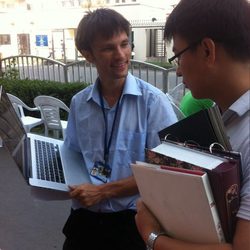
Jacob Thomas
In terms of substance, my dissertation—“The Denied, the Deterred, and the Disenchanted: The Variety of Individuals that Do Not Travel or Migrate Abroad and Why” examines why more people do not travel or into the US. In terms of method, I am building and analyzing the first large scale individual-level survey dataset about three different types of individuals in China that do not travel or immigrate into the US--those that are denied visas, those that are deterred from applying for visas and going abroad, and ex-immigrants that previously intended to immigrate but then later change their mind and return. In terms of theory, I aim to draw on this data to better understand what we already know about immigrants and contribute new insights to longstanding perennial questions about migrant selectivity, state capacity to control migration and the relationship between social stratification/mobility/inequality and international migration and travel.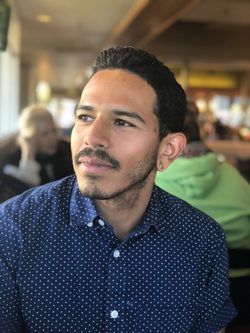
Burrel Vann Jr
Burrel Vann Jr is an Assistant Professor of Criminal Justice at San Diego State University. His work tackles questions central to cultural and political change: how agents-of-change shift dominant perceptions of contested issues, and how policymakers and the general public respond to these attempts. This work includes investigations of politics, drugs, crime, and social movements using quantitative and computational methods. Prior to joining SDSU, in 2019, he completed his Ph.D. in Sociology from the University of California, Irvine.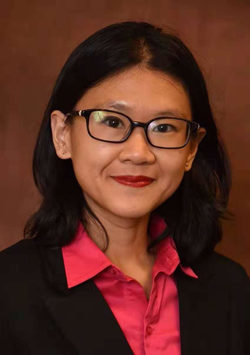
Rachelle Wang-Cendejas
Rachelle Wang-Cendejas is a Ph.D. candidate in sociology at the University of Southern California. Her research focuses on Family Sociology, Military Economics, and Social Stratification. Working as a research technician at a Federal Statistical Research Data Center, she has analyzed the migration patterns and associated socioeconomic outcomes of indigenous people in rural Alaska. Currently, Rachelle is completing her doctoral dissertation, studying U.S. military personnel’s long-term education and employment patterns. Based on sequence analysis and clustering solution, she examines and evaluates how individual social correlates are associated with different career pathways and corresponding life-course outcomes.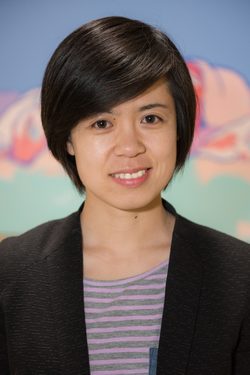
Zheng Yang
Dr. Zheng Yang is an assistant professor in the Department of Public Administration at California State University, Dominguez Hills. She has a Ph.D. in Public Administration by North Carolina State University. Her research and teaching focuses on organizational theory and behavior, public and nonprofit management, social network governance, inter-organizational collaboration, performance management, as well as quantitative and qualitative research methods.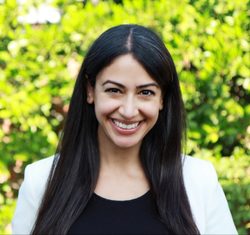
Hajar Yazdiha
Hajar Yazdiha is an Assistant Professor in the Department of Sociology at University of Southern California and a faculty affiliate of the Center for the Study of Immigrant Integration. Her research is centered on explaining the mechanisms underlying the politics of inclusion and exclusion, using mixed methods to examine why different ethnoracial groups perceive exclusion and strategize against inequality in particular ways. Through previous research projects, she has examined how macro-structures like immigrant integration policies, proposed legislation, and news media produce exclusionary conditions, as well as how targeted groups perceive and organize through micro-processes of meaning-making. In a new stream of research, she is interested in using digital trace data to examine the relationship between political culture and individual life outcomes, connecting political and cultural theory to demographic analysis.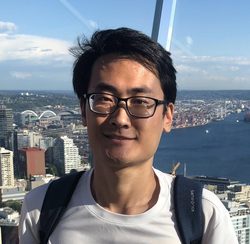
Ang Yu
Ang Yu recently graduated from Stanford University with a master's degree in East Asian Studies. In September, he is heading to University of Wisconsin, Madison to start his PhD in sociology. Ang is broadly interested in social inequalities and quantitative methodology. His master's thesis probes the impact of parental wealth on the interdependent timings of young people's financial independence and housing attainment. He also has some ongoing projects related to educational inequality at their preliminary stages.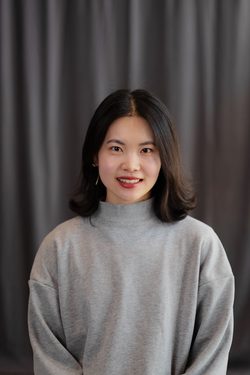
Yawen Yu
Yawen Yu is a PhD student in the Department of Education, University of California, Los Angeles, in the division of Human Development and Psychology. Her research interest is primarily in language development, more specifically, understanding the role of environmental factors in early language and bilingual language development. Prior to coming to UCLA, Yawen received a M.A. in Humanities Study from the University of Chicago, a B.A. in Philosophy from Zhejiang Gongshang University, China.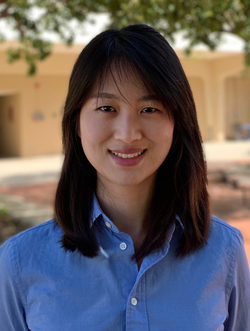
Weijun Yuan
Weijun Yuan is a PhD student in Sociology at UC Irvine. Her research interests are political sociology, media, and urban sociology. Her research examines how state actions shape social movements in the digital age and how information proliferation influences the state's ability to conduct surveillance. She relies on computational text analysis, statistical methods, and ethnographic work to answer these questions. As for computational methods, she is especially interested in exploring tools to detect and retrieve protest events using media data. Before starting the doctoral program, she earned a BA from Tsinghua University (Beijing) and an MA from UC San Diego.
